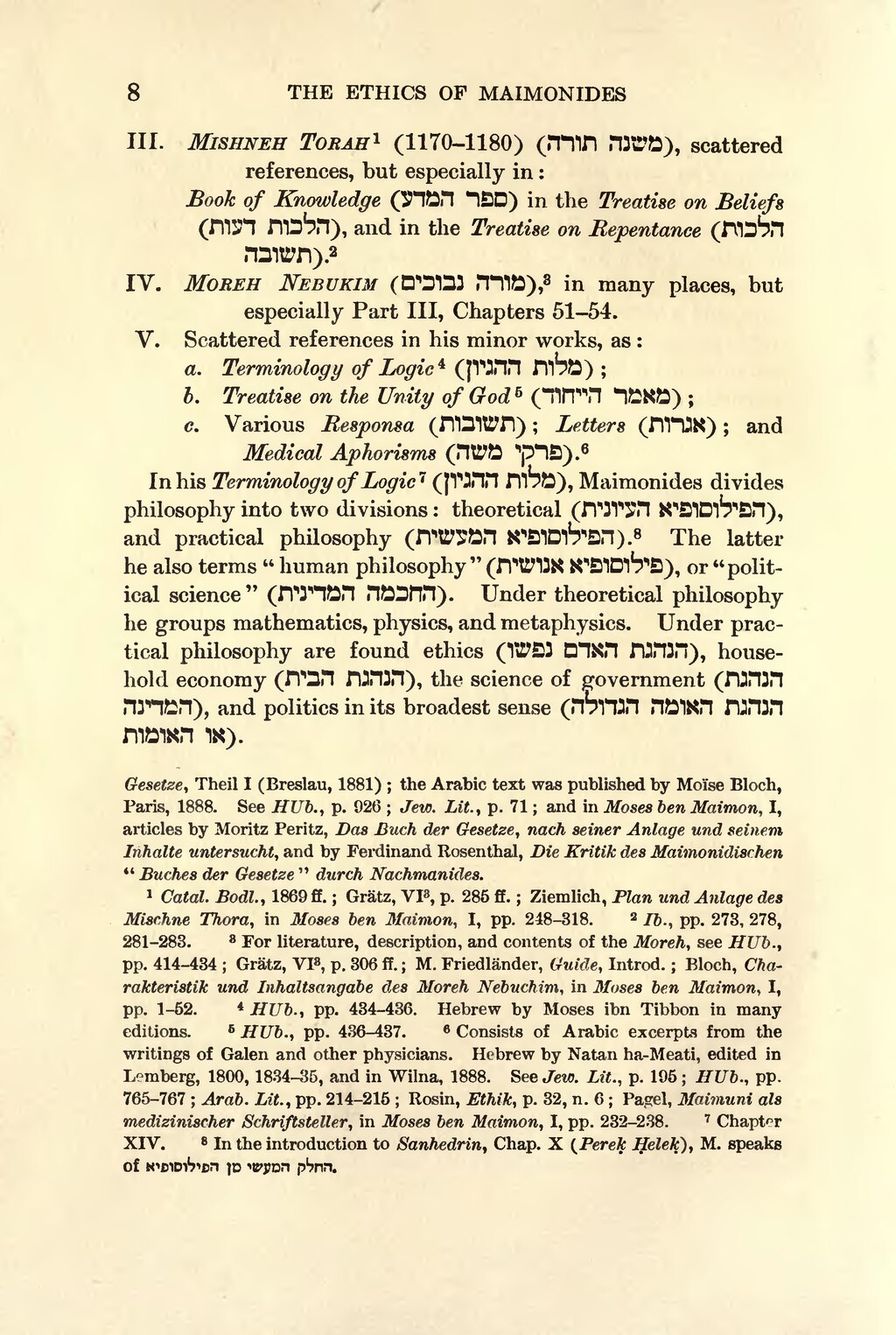-
Book of Knowledge (ספר המדע) in the Treatise on Beliefs (הלכות דעות), and in the Treatise on Repentance (הלכות תשובה).[2]
- Scattered references in his minor works, as:
In his Terminology of Logic[7] (מלות ההגיון), Maimonides divides philosophy into two divisions: theoretical (הפילוסופיא העיונית), and practical philosophy (הפילוסופיא המעשית).[8] The latter he also terms “human philosophy” (פילוסופיא אנושית), or “political science” (החכמה המדינית). Under theoretical philosophy he groups mathematics, physics, and metaphysics. Under practical philosophy are found ethics (הנהגת האדם נפשו), household economy (הנהגת הבית), the science of government (הנהגת המדינה), and politics in its broadest sense (הנהגת האומה הגדולה או האומות).
- ↑ Catal. Bodl., 1869 ff.; Grätz, VI³, p. 285 ff.; Ziemlich, Plan und Anlage des Mischne Thora, in Moses ben Maimon, I, pp. 248–318.
- ↑ Ib., pp. 273, 278, 281–283.
- ↑ For literature, description, and contents of the Moreh, see HUb., pp. 414–434; Grätz, VI³, p. 306 ff.; M. Friedländer, Guide, Introd.; Bloch, Charakteristik und Inhaltsangabe des Moreh Nebuchim, in Moses ben Maimon, I, pp. 1–52.
- ↑ HUb., pp. 434–436. Hebrew by Moses ibn Tibbon in many editions.
- ↑ HUb., pp. 436–437.
- ↑ Consists of Arabic excerpts from the writings of Galen and other physicians. Hebrew by Natan ha-Meati, edited in Lemberg, 1800, 1834–35, and in Wilna, 1888. See Jew. Lit., p. 195; HUb., pp. 765–767; Arab. Lit., pp. 214–215; Rosin, Ethik, p. 32, n. 6; Pagel, Maimuni als medizinischer Schriftsteller, in Moses ben Maimon, I, pp. 232–238.
- ↑ Chapter XIV.
- ↑ In the introduction to Sanhedrin, Chap. X (Pereḳ Ḥeleḳ), M. speaks of החלק המעשי מן הפילוסופיא.
Gesetze, Theil I (Breslau, 1881); the Arabic text was published by Moïse Bloch, Paris, 1888. See HUb., p. 926; Jew. Lit., p. 71; and in Moses ben Maimon, I, articles by Moritz Peritz, Das Buch der Gesetze, nach seiner Anlage und seinem Inhalte untersucht, and by Ferdinand Rosenthal, Die Kritik des Maimonidischen “Buches der Gesetze” durch Nachmanides.
